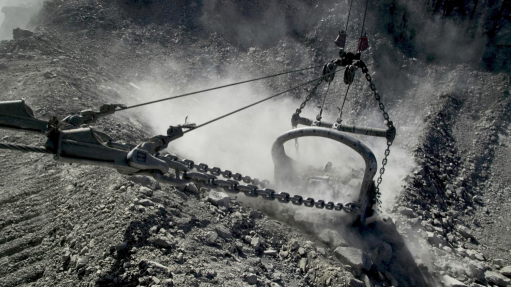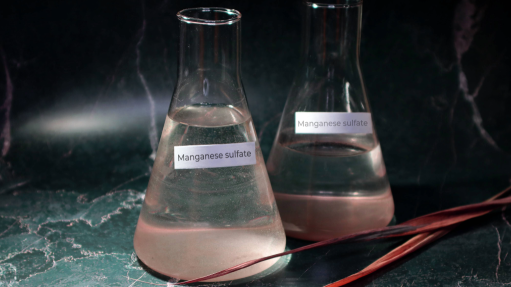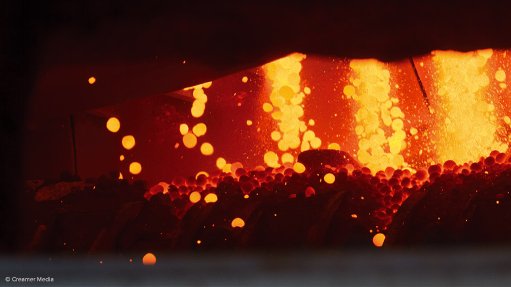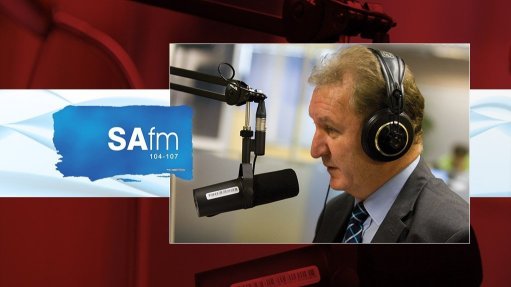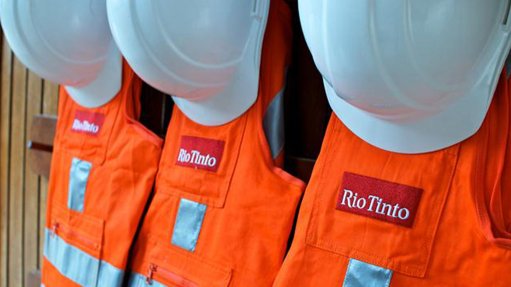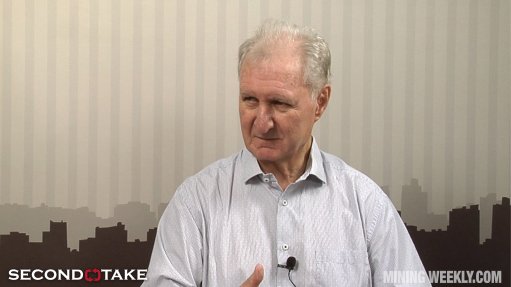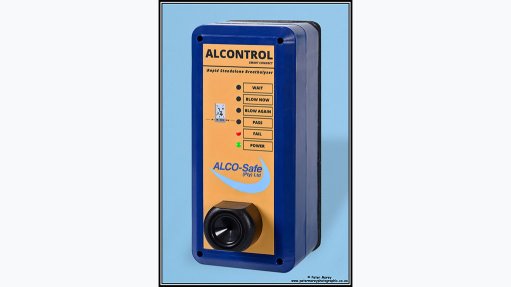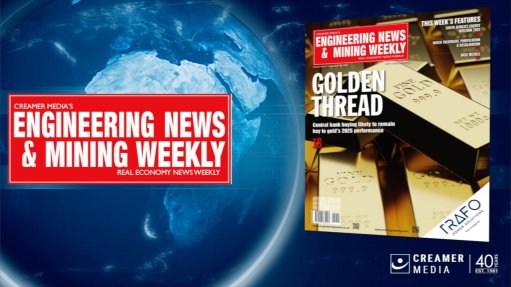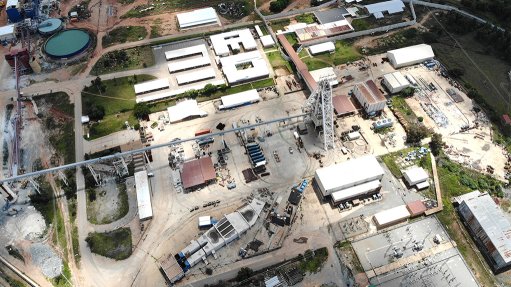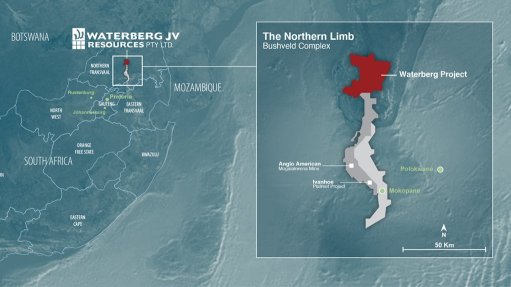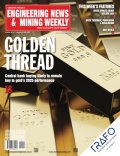Steel market embracing need for decarbonisation, says Kumba Iron Ore

Kumba Iron Ore results presentation covered by Mining Weekly’s Martin Creamer. Video: Darlene Creamer.
JOHANNESBURG (miningweekly.com) – At a time when steelmakers the world over are taking strong steps to decarbonise steelmaking, Kumba Iron Ore’s high-quality, high-lump iron-ore is highly sought after, which positions the Johannesburg Stock Exchange-listed mining and marketing company well in the global fight against climate change.
Simultaneously, steel demand is expected to increase significantly as a result of the massive global transition to renewable energy.
This is because the steel intensity in renewable power infrastructure is 10 to 30 times more than the steel intensity of fossil-based power infrastructure, making steel a vital energy transition ingredient. (Also watch attached Creamer Media video.)
“The buildings we live and work in, the infrastructure and even the vehicles all of us used to get here this morning are all manufactured from steel," Kumba Iron Ore CEO Mpumi Zikalala noted on Tuesday, when the company reported an impressive 98% return on capital employed in the six months to June 30 and declared an interim cash dividend of R9.2-billion.
The average realised free-on-board export price of Kumba’s quality high iron (Fe) iron-ore in the half year was $136/wmt, 15% up on the global benchmark price.
“Steel is not only central to how we live today, but it is also pivotal for the future. It is a critical ingredient and enabler for the energy transition across all renewable power infrastructure and electric vehicles, and we also know that the steel market is embracing the need for decarbonisation,” said Zikalala during the presentation of results covered by Mining Weekly.
To decarbonise the steelmaking process, steel mills are investing more in direct reduction iron (DRI), which is produced from the direct reduction of iron-ore into iron by a reducing gas, with green hydrogen the gas needed to fulfil the DRI process in the most environmentally protective manner.
“There is a healthy pipeline of DRI projects coming on line in the next 30 years and the share of DRI in global steel production is expected to almost triple to 26% by 2050. This will drive demand for high-quality ore as it offers higher productivity and has lower energy requirements.
“In fact, for every 1% increase in Fe, one will see a 3% decrease in carbon emissions. Kumba is well positioned as a leading provider of high-quality, high-lump iron-ore. Our Fe quality, in lump to fines ratio, remains high relative to our peers but more importantly, Kumba continues to focus on premium products,” Zikalala said.
To augment its quality position, Kumba is scheduled to commission a R3.6-billion ultra-high dense media separation (UHDMS) project in the second half of 2023. The UHDMS processes waste into premium product.
“The UHDMS will approximately double the volume of premium lump and further improve the quality of our product portfolio,” said Zikalala.
Kumba CFO Bothwell Mazarura told the first-half financial results presentation covered by Mining Weekly that since 2018, Kumba’s attributable free cash flow has totalled R85-billion, which included the R9.4-billion of free cash flow generated in the six months to June 30. For the period, Kumba will be paying an interim cash dividend of R28.70 a share, which represents a payout ratio of 80% of headline earnings and a dividend yield of 6% on the period and the share price.
“In the past four years, we’ve paid over R70-billion in base dividends and R16.6-billion in top-up dividends. Despite the cyclical nature of our business, the operational and macro challenges and market volatility over the past few years, we’ve provided consistent returns to our shareholders.
“During the same four years, we’ve returned just over 100% of free cash flow and on average more than 90% of headline earnings to our shareholders. This underscores the financial and operational resilience of our business. We remain committed to maintaining a balance between investing to sustain and grow our business, while returning excess cash to shareholders,” said Mazarura.
INCREASING EVIDENCE OF GLOBAL WARMING
Turning to Kumba’s environmental performance, Zikalala highlighted that the company had not suffered any major level 3 to level 5 environmental incidents for seven-plus years.
“Secondly, with climate change, pressure on fresh resources is a global concern. As part of our sustainable mining plan, we are targeting a 50% reduction in freshwater usage by 2030 and I’m glad to say that we’ve seen an 18% decrease in the use of fresh water since 2015,” Zikalala said.
In the first half of this year, Kumba supplied more than 7.5-billion litres of fresh water to municipalities from essential mine dewatering activities.
To date, it has reshaped 62.9 ha and seeded 16.5 ha of land.
She described decarbonisation as a clear global priority, amid increasing evidence of global warming.
“We remain focused on our carbon footprint and decarbonising our operations is an imperative if we are to have a more sustainable future.
“As part of our decarbonisation future, we are targeting a 30% reduction in Scope 1 and Scope 2 greenhouse-gas emissions by 2030 and carbon neutrality by 2040,” said Zikalala.
Diesel makes up 80% of Kumba’s Scope 1 energy requirements but contributes only just over 50% of the company’s actual Scope 1 emissions, while electricity represents 20% of Kumba’s energy requirements and contributes just under 50% of its Scope 2 emissions.
“This represents significant opportunity to achieve our 30% target through our Scope 2 emission reduction projects,” she added.
As a result, Kumba is prioritising its participation in the broader Anglo American group’s regional renewable energy strategy.
This includes the plan to develop a 65 MW solar plant at the Sishen iron-ore mine by 2025 as well as wheeled wind and storage by 2030, which offers the company a pathway to zero Scope 2 emissions.
Environmental studies on the solar photovoltaic plant are under way as are studies to supply 10 MW to 15 MW of the power supply at the Kolomela iron-ore mine.
In terms of Scope 1 emissions, Kumba’s current focus is on truck efficiency and operational initiatives to reduce its diesel usage.
Zikalala also expressed excitement about the potential benefits of the hydrogen-powered truck currently being piloted at Anglo American Platinum’s Mogalakwena platinum group metals mine in Limpopo.
Regarding Scope 3, decarbonisation of the steel industry will be key, as the steelmaking value chain indirectly generates Kumba’s Scope 3 carbon emissions.
Through Anglo American marketing, Kumba is partnering with steelmaking customers to help to lower their Scope 3 emissions by using its high-quality iron-ore products.
It established its partnership with Salzgitter of Germany last year and recently announced its partnership with Nippon Steel of Japan.
Comments
Press Office
Announcements
What's On
Subscribe to improve your user experience...
Option 1 (equivalent of R125 a month):
Receive a weekly copy of Creamer Media's Engineering News & Mining Weekly magazine
(print copy for those in South Africa and e-magazine for those outside of South Africa)
Receive daily email newsletters
Access to full search results
Access archive of magazine back copies
Access to Projects in Progress
Access to ONE Research Report of your choice in PDF format
Option 2 (equivalent of R375 a month):
All benefits from Option 1
PLUS
Access to Creamer Media's Research Channel Africa for ALL Research Reports, in PDF format, on various industrial and mining sectors
including Electricity; Water; Energy Transition; Hydrogen; Roads, Rail and Ports; Coal; Gold; Platinum; Battery Metals; etc.
Already a subscriber?
Forgotten your password?
Receive weekly copy of Creamer Media's Engineering News & Mining Weekly magazine (print copy for those in South Africa and e-magazine for those outside of South Africa)
➕
Recieve daily email newsletters
➕
Access to full search results
➕
Access archive of magazine back copies
➕
Access to Projects in Progress
➕
Access to ONE Research Report of your choice in PDF format
RESEARCH CHANNEL AFRICA
R4500 (equivalent of R375 a month)
SUBSCRIBEAll benefits from Option 1
➕
Access to Creamer Media's Research Channel Africa for ALL Research Reports on various industrial and mining sectors, in PDF format, including on:
Electricity
➕
Water
➕
Energy Transition
➕
Hydrogen
➕
Roads, Rail and Ports
➕
Coal
➕
Gold
➕
Platinum
➕
Battery Metals
➕
etc.
Receive all benefits from Option 1 or Option 2 delivered to numerous people at your company
➕
Multiple User names and Passwords for simultaneous log-ins
➕
Intranet integration access to all in your organisation







